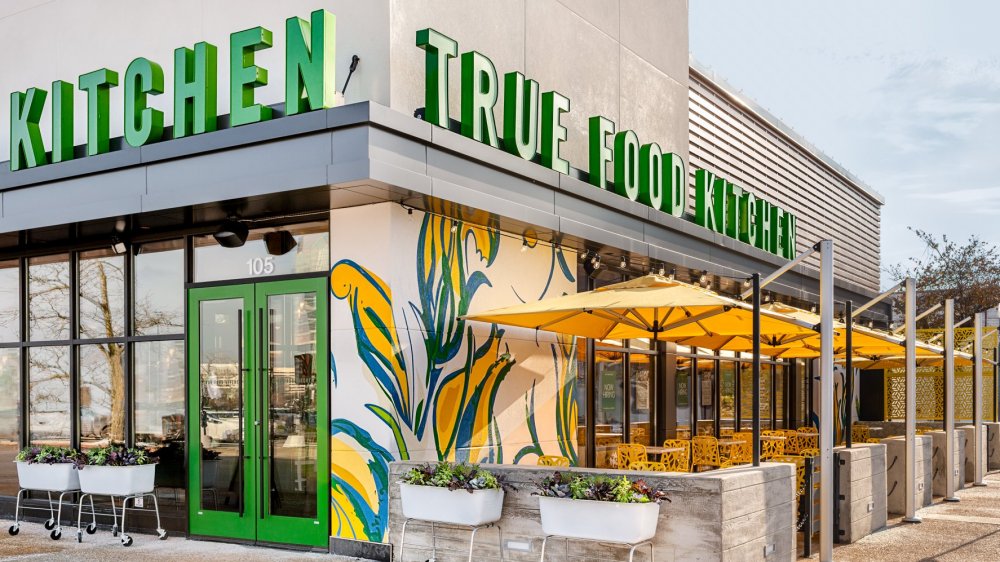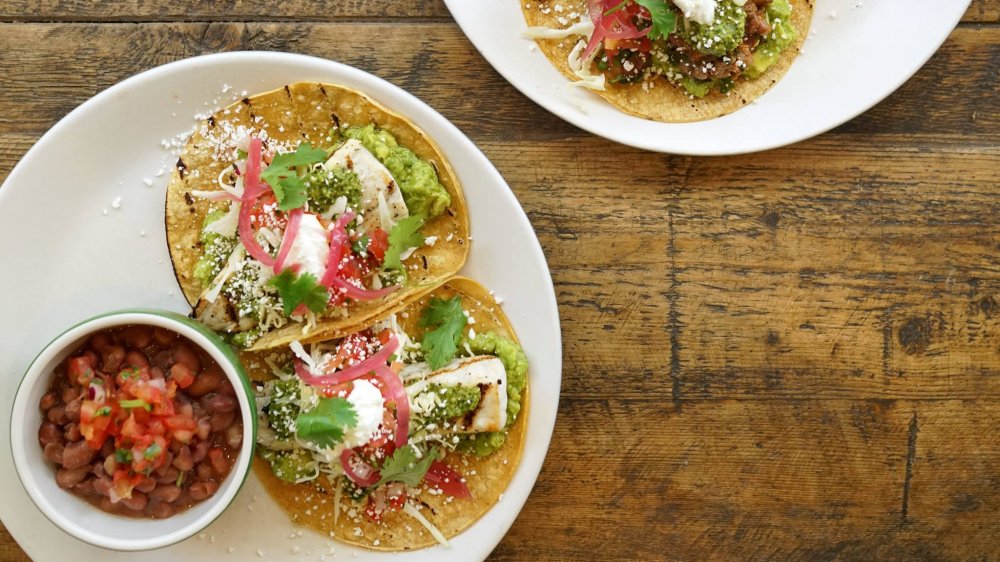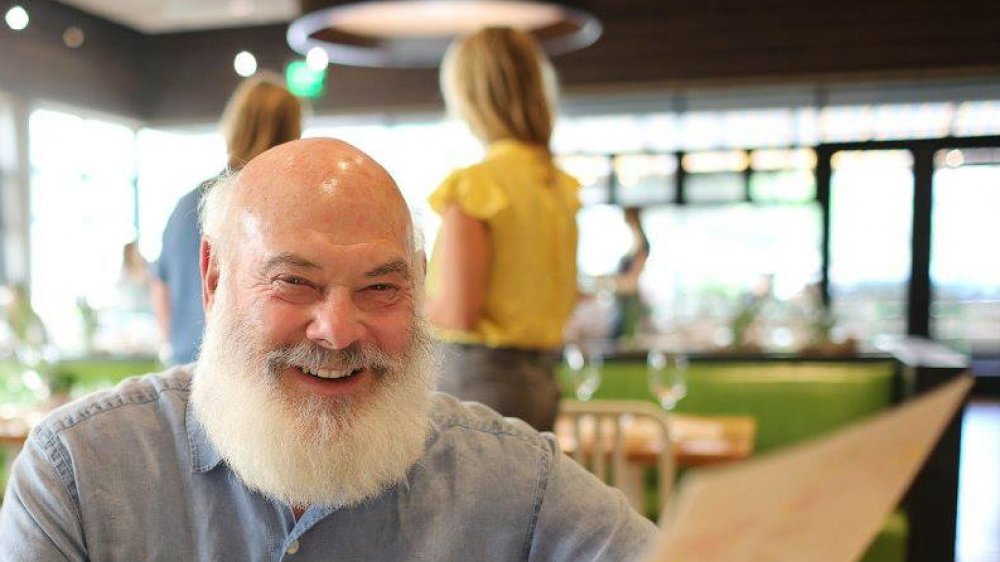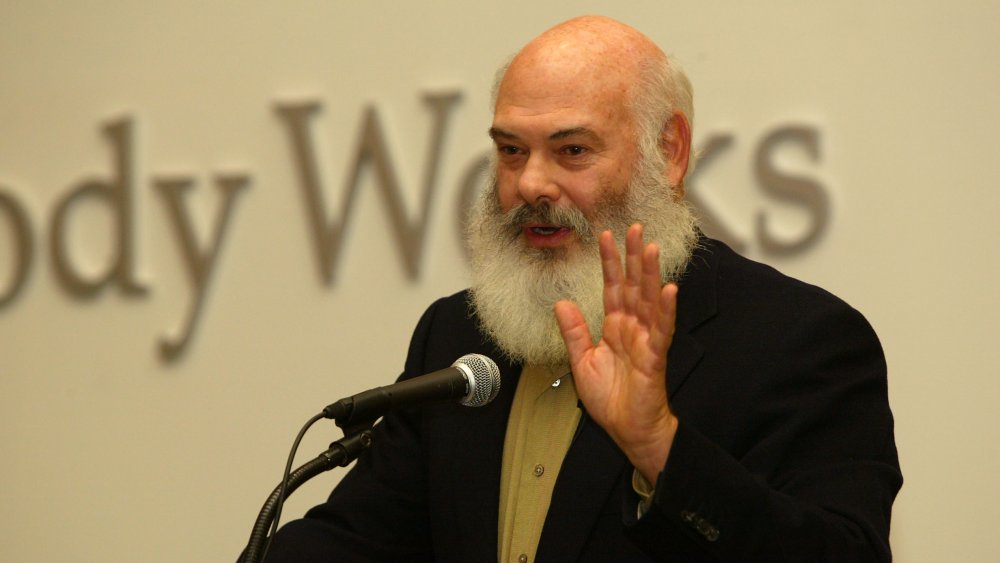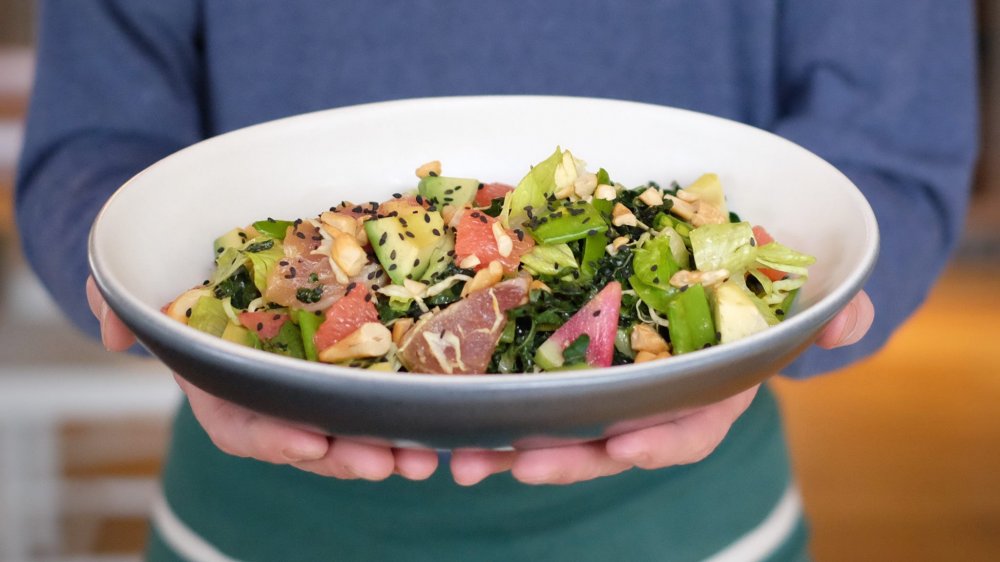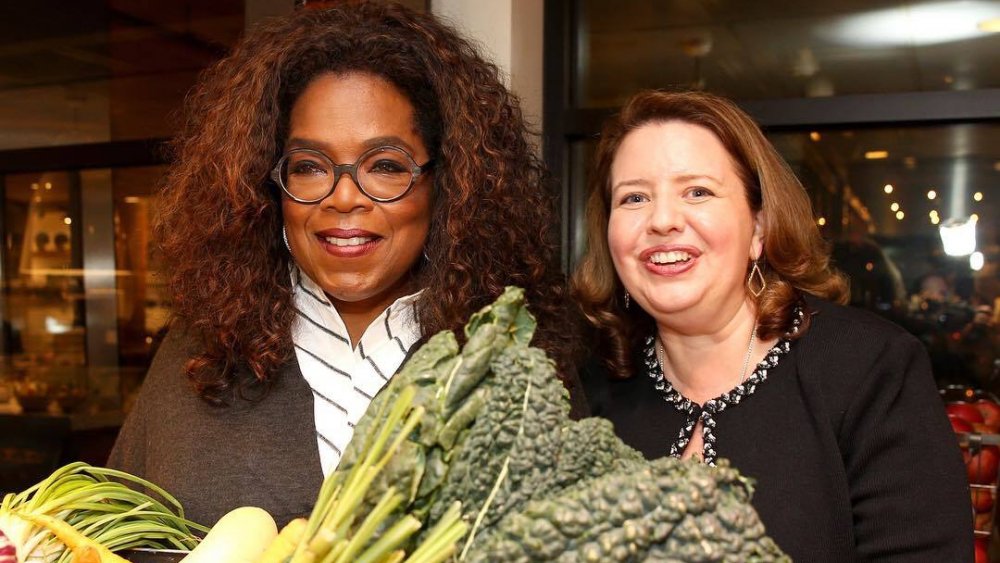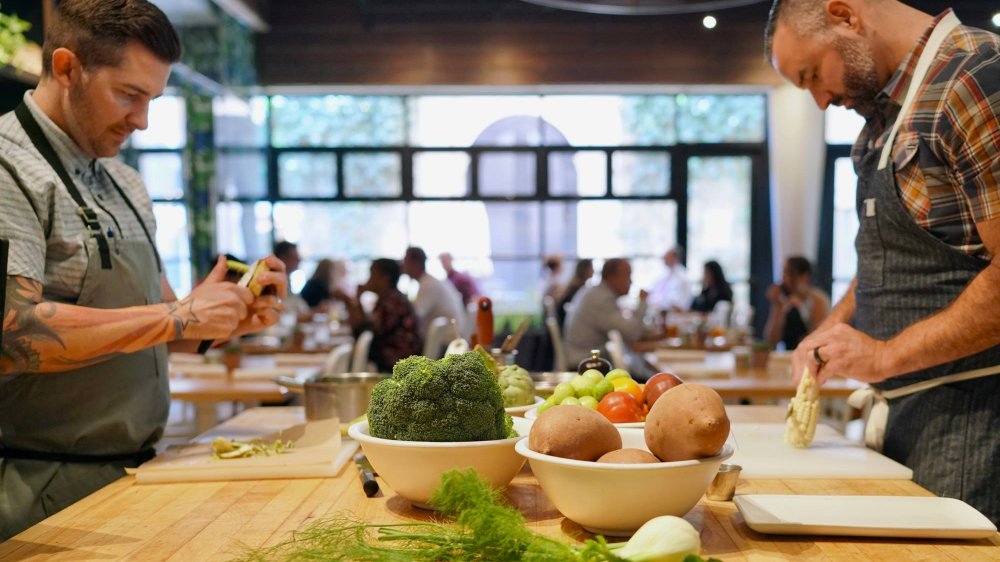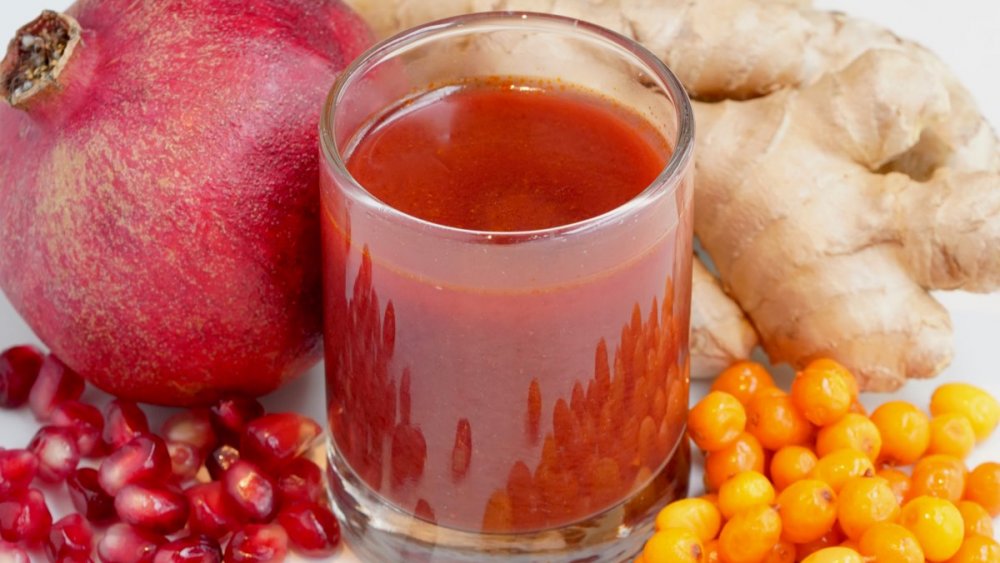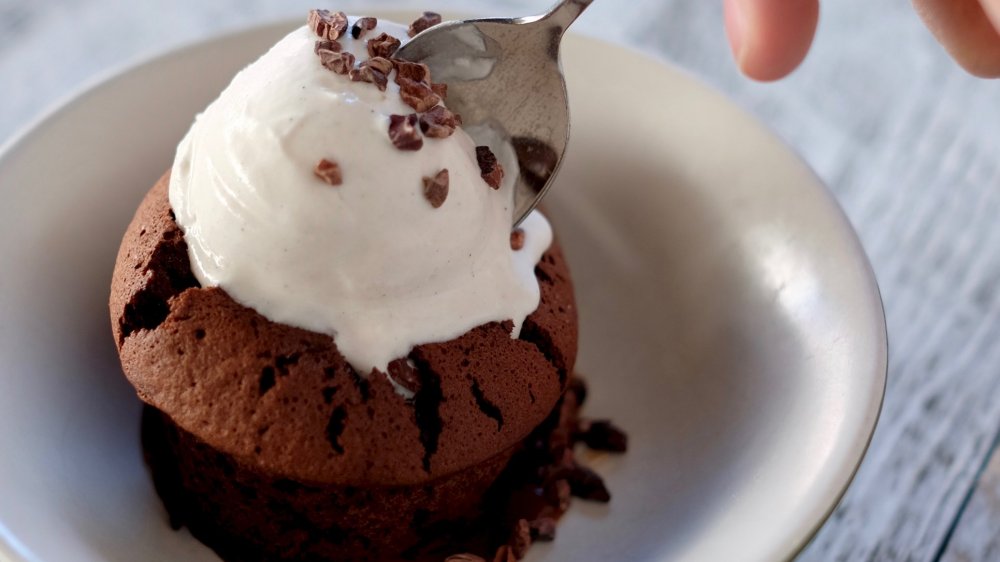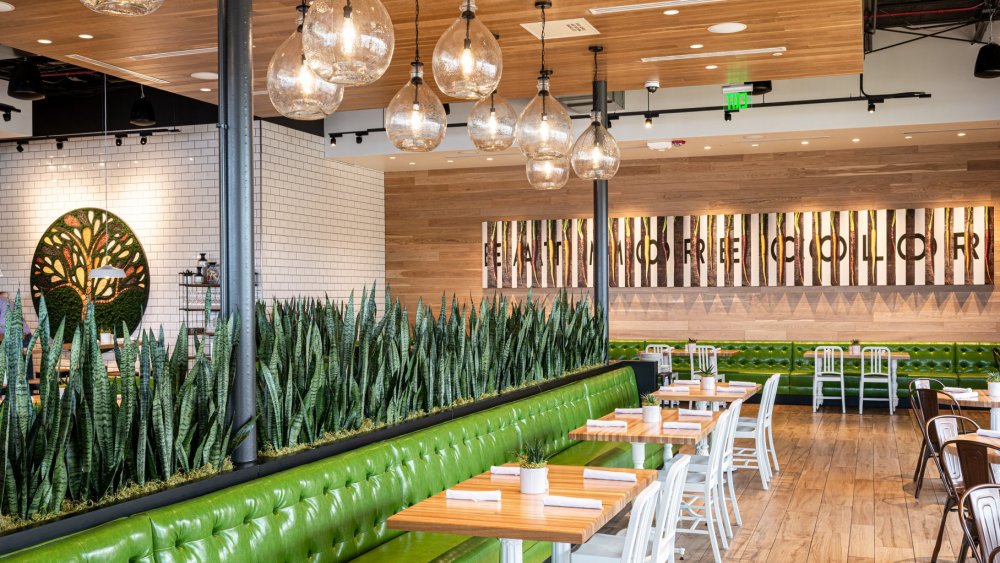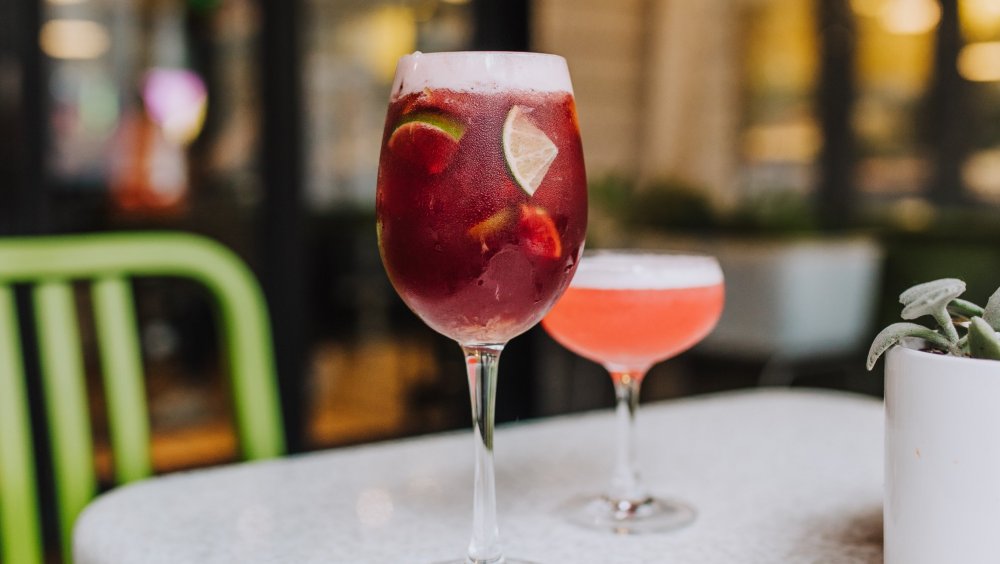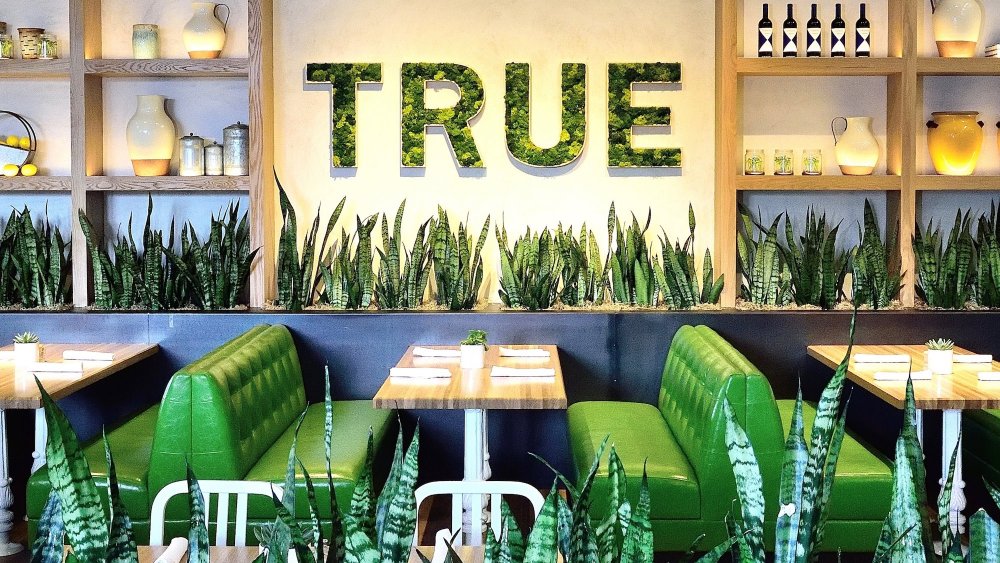The Untold Truth Of True Food Kitchen
We may receive a commission on purchases made from links.
American chain restaurant cuisine has traditionally leaned towards heaping portions of fried and starchy, sugary and doughy, processed and caloric comfort foods that momentarily hit that sweet (or salty or fatty) spot and then leave us wracked with guilt, loosening our belt buckles, and reaching for the bottle of antacid. Because of such leanings, few imagined that a restaurant serving contemporary health food, let alone one with the decidedly earnest name of True Food Kitchen, would make a culinary splash beyond the rarefied niche of vegan, vegetarian, and gluten-free dining.
However, since opening its first Phoenix location, True Food Kitchen has grown into something more than one of America's most revolutionary, recognizable, and successful healthy food chains. With 32 bright and airy locations and counting, True Food Kitchen is a driving force in a mushrooming market, proof of their philosophy that "food should make you feel better, not worse." Whether or not you'll feel better from scarfing down an ancient-grains bowl or attacking a grass-fed organic beef burger (without the fries, of course) True Food Kitchen has you covered. In doing so, it's positioned itself as more than just an eating experience — it's a lifestyle.
True Food Kitchen's loyal following is such that some members of the True Food Kitchen "community" are known to eat at its eco-chic environs four or five times a week. Yet, probably not even these die-hard diners are aware of some of the following off-the-menu True Food facts.
True Food Kitchen is all about inflammation
Dr. Andrew Weil is the brain behind True Food Kitchen. This extravagantly bearded celebrity doctor, holistic hero, and alternative medicine advocate fervently believes that even though food is medicinal, it shouldn't taste like medicine.
True Food Kitchen's healthy menu takes its inspiration from Weil's Anti-Inflammatory Food Pyramid. Inflammation is the body's natural response to an infection or injury. While it causes temporary suffering — we've all experienced the swelling, burning, and wince-inducing pain that accompanies inflamed joints — inflammation is a sign that your body's healing instincts are kicking butt against alien invaders like bacteria and viruses. However, too much of a good thing can be destructive. Such is the case with chronic, low-level, undetectable inflammation, which contributes to diseases such as arthritis, heart disease, Alzheimer's, and various types of cancer. While many factors influence inflammation — including DNA, stress, and the environment — diet plays a major role, particularly the average American diet of carb-and-calorie-heavy refined and processed foods.
Weil's Anti-Inflammatory Diet riffs creatively on the Mediterranean diet, with its emphasis on fresh fruit and leafy green vegetables, whole grains, seeds and nuts, extra-virgin olive oil, and fatty fish, such as salmon and sardines, laden with Omega-3. At True Food Kitchen, these ingredients team up with some potent and pungent Asian influences (miso, wasabi, lemongrass, ginger) and classic elements of California cuisine (wraps, tacos, salads, and avocado everything), creating a hybrid and healthy contemporary menu that's earned rave reviews and spawned a best-selling cookbook.
True Food Kitchen's founder is one of the world's most influential people
Andrew Weil was a wellness celebrity long before founding True Food Kitchen. In fact, he's considered to be one of the pioneers of integrative medicine, which fuses conventional, science-based, Western medicine with alternative healing and health practices that focus on the mind and spirit as well as the body.
Weil was making New Age waves in American medical communities as early as 1994, when he founded the Arizona Center for Integrative Medicine (since rechristened the Andrew Weil Center for Integrative Medicine). Soon after, he scored a Time magazine cover, his signature bushy beard and arched brows framed by the title, "Can This Guy Make You Healthy?" In 2005, Time magazine profiled him again, this time as "one of the world's most influential people."
Before achieving cover boy status, Weil studied botany at Harvard during the early '60s. He briefly palled around with counter-culture hero and psychedelic drug advocate, Timothy Leary, and wrote a thesis entitled "The Use of Nutmeg as a Psychotropic Agent." Upon graduating, Weil worked at the National Institute of Mental Health (NIMH) before quitting to delve into yoga, meditation, vegetarianism, and alternative forms of healing including medicinal (sometimes mind-altering) plants. Such research propelled his rise to fame. By the time he opened True Food Kitchen, Weil had written a slew of best-selling books, guest starred repeatedly on Larry King Live, Oprah, and The Today Show, and rolled out several product lines, from skin care and orthopedic shoes to salmon sausages.
Critics claim True Food Kitchen's Andrew Weil promotes "quackademic medicine"
The medical establishment has long had beef with Andrew Weil for his unorthodox views, not to mention his pro-pot positions. The latter date back to his days at Harvard when the faculty of medicine came close to denying him his degree due to a controversial marijuana study he'd worked on.
As his renown (and his beard) grew, so did the blowback from proponents of conventional medicine. Constantly in the media (and increasingly well-paid), Weil became known as a "rock star" of alternative medicine. Angered by his propensity to throw shade at evidence-based treatments, various doctors and academics accused Weil of touting "New Age remedies" whose benefits were untested or disputed. In a 2011 article published on ScienceBlogs.com, one scathing critic, David Gorski, described Weil as a "kindly, benevolent Arizona desert Santa Claus, an ex-hippie turned respectable" who "has over the course of his lifetime done more to promote the rise of quackademic medicine" than any other physician.
Weil has punched back at his critics, pointing out that natural and holistic remedies and practices are less harmful, and far less costly, than those promoted by Big Pharma. Far from dissing conventional medicine, Weil also claims to endorse an intelligent combination of both conventional and alternative treatments and lifestyle options.
One of the founders thought True Food Kitchen would bomb
When Andrew Weil brainstormed the idea to open a restaurant chain serving contemporary health food, he took it to Sam Fox, the Phoenix-based king of concept restaurants. As CEO of Fox Restaurant Concepts, Fox had a winning track record of opening over 50 restaurants in the U.S. — all of them successful. For this reason, he initially turned Weil down. Fox believed that a health food restaurant was a losing proposition.
In truth, upon hearing the word "healthy," Fox's brain had unhelpfully conjured up hippie-era images of granola and sunflower seeds. But Weil persisted. He invited Fox for a home-cooked meal and blew his mind with food that tasted unexpectedly fantastic. Despite lingering doubts, Fox joined forces with Weil to open an initial True Food Kitchen in Phoenix's Biltmore Plaza. To his surprise, a decade later there were nearly 30 True Food Kitchens in 10 U.S. states, each of them raking in between $7 and $10 million a year.
Fox's initial reluctance was more realistic than pessimistic. In pre-True Food Kitchen America, attempts to open health food restaurant chains had proved disastrous. One of the most promising candidates, The Good Earth, was the brainchild of William Gait, who in the 1950s had helped Colonel Sanders get Kentucky Fried Chicken up and running. In the 1970s, Gait opened Good Earth restaurants in 11 states before failure struck and the majority were subsequently, and somewhat unhealthily, transformed into Olive Gardens and Red Lobsters.
Oprah is involved with True Food Kitchen
After lunching at True Food Kitchen's Palo Alto restaurant with her personal trainer and business partner, Bob Greene, Oprah Winfrey was so wowed with healthy offerings such as spaghetti squash casserole and green tea soba noodles that she wanted in. In 2018, she put her money where her mouth was, making a big equity investment in the company. She also joined its select board of directors.
True Food Kitchen is hardly Oprah's first foray into the health food segment. In 2014, she partnered with Starbucks to launch Teavana Oprah Chai Tea, with a portion of sales being donated to her educational foundation. In 2017, she teamed up with Kraft Heinz to launch a line of healthy çomfort food under the catchy brand name O, That's Good! Most famously, in 2015, she purchased a stake in Weight Watchers International. Her presence at speaking engagements and in commercials caused Weight Watchers shares to take off.
At True Food Kitchen, Oprah has remained a somewhat silent partner. That said, on occasion star-struck diners have been treated to her O-someness in person. During a Winter Harvest Community Dinner at a Pasadena True Food Kitchen in 2019, the media mogul and part-time farmer was a surprise guest who pitched in to prepare dinner made with her own garden-grown ingredients.
True Food Kitchen is a chain without franchises
True Food Kitchen is that rare chain in which the company owns all its own restaurants, the better with which to exert control over a complex business focused more on creating a sustainable brand than merely raking in the dollars. As CEO Christine Barone stated in a 2019 interview published in Forbes, most restaurant chains believe they have to simplify their operations when they expand. "But often times, simplifying is taking away the best things from who you are."
Since True Food Kitchen owns its complexity, it tries to expand without diminishing it. For instance, because True Food Kitchen sources its products as locally, and organically, as possible, instead of buying in bulk from a national or global supplier, individual restaurants have to obtain their own ingredients based on what's at hand, taking into account factors such as the climate and the season.
Staying in control also explains why, to date, the company has no plans to go public. Instead, as it grows, True Food Kitchen always makes sure to have a healthy reserve of cash on hand to operate and expand its business (Thanks Oprah!).
True Food Kitchen is REAL
Everybody's hip to the fact that True Food Kitchen is all about being True, but it's less commonly known that, in 2016, True Food Kitchen's restaurants were certified for REAL. True Food Kitchen's REALness was awarded by the United States Healthful Food Council (USHFC), a nonprofit whose goal is to revolutionize America's food system and fight diet-related diseases by prodding Americans to ditch the fast food burgers and fries and start eating in a healthy and sustainable manner.
REAL stands for Responsible, Epicurean, Agricultural, and Leadership. When a committee of registered dietitians evaluates a restaurant menu, supply chain, and operations, it takes these four traits into account.
The USHFC awarded True Food Kitchen's menu high marks for serving nutritious, sustainably-sourced and artfully presented vegan, vegetarian, naturally organic, and gluten-free food, while also catering to diners' specific dietary needs. True Food Kitchen earned particular kudos for relying on local, organic sources as much as possible and for focusing on a conscious, community-based eating experience that prioritizes nutrient-packed superfoods such as sea buckthorn and Anasazi beans.
True Food Kitchen's food isn't quite as healthy as it seems
True Food Kitchen may be the real deal, but if you squint and read the fine digital print, you'll realize that, technically, True Food Kitchen is more health-minded than it is healthy. Nutritional information published on its site reveals that many of its most beloved dishes actually feature generous additions of sugar, salt, and fat.
In 2018, Eat This, Not That! magazine ranked some of True Food Kitchen's most popular, year-round menu items from best to worst, based on how healthy they actually are once fat, sodium and sugar are factored in.
In the breakfast category, smashed avocado toast was a winner, while blueberry pancakes got slammed for "nearly a day's worth of waistline-widening sugar" and a surprising amount of sodium. When it came to starters, Asian herb-infused edamame dumplings scored high points while the share-able Margherita pizza was burned for its high 850 calorie count.
In the all-important entrée category, True Food Kitchen's signature organic Tuscan kale salad was a clear winner while the cashew pad Thai bowl was a surprising last-place finish. Doused with an entire day's recommended dose of sodium, it also boasted 23 grams of sugar, most of it lurking within the accompanying tamarind shrimp sauce. For dessert, the chia seed pudding lived up to its healthy-sounding name. Sadly, the flourless chocolate cake compensated for its lack of gluten with a crowning scoop of vanilla ice cream.
True Food Kitchen's decor is as green as its food
At True Food Kitchen, style is as important as substance. From the outset, Weil and Fox were intent on creating an eating environment that was as sustainable as the menu. Although each location has its own individual ambient quirks, there are a lot of environmentally-friendly common denominators.
All restaurants feature energy-conscious low-voltage LED lighting, ultra-low water faucets, and energy efficient kitchen equipment. Each location also produces its own still and carbonated bottled water, thanks to an in-house Natura water purification system that makes use of constantly recycled glass bottles. Male customers prone to flushing can ease guilty consciences as well as full bladders at waterless urinals that, in total, save more than 40,000 gallons of water a year.
True Food Kitchen's decor skews equally green with reclaimed wooden floors and quarry tiles. Low VOC paint coats walls and fixtures in comforting earth tones and fresh hues of green. Among the abundant fruits, herbs, and flora that add an Edenic vibe are pots and basins full of Sansevieria. Commonly known as "snake plants" or "mother-in-law's tongue," the sword-shaped leaves of these suggestively named shrubs purportedly have the potential to act as natural air purifiers.
True Food Kitchen is a downward dog destination
More than just a place to grab a healthy bite, True Food Kitchen prides itself on being a healthy, holistic community. The True Food Kitchen lifestyle transcends food and extends to all areas of wellness. As part of its mission to offer guests a unique wellness experience, each location offers a series of in-restaurant events, ranging from healthy educational seminars and gardening workshops to sneak previews of seasonal menus and intimate community dinners organized around specific themes and produce.
Those who sign up for the in-restaurant fitness classes have the added incentive of following their work-out with a restorative, not to mention discounted, brunch featuring the likes of sunrise bowls and garden scrambles, chased with Tropi-Kale smoothies. Yoga classes, where the guiding mantra is: "Breathe it in. Brunch it out," are particularly popular.
Get wasted and cure your hangover at True Food Kitchen's bar
It's a big mistake to think that just because True Food Kitchen possesses serious vegan, vegetarian, and gluten-free cred, you can't get a serious buzz on as well. Sure, you can get as juiced up as you want with fresh and fruity smoothies, tonics, and refreshers such as Kale Aid, Sparkling Peach Tea, and Prickly Pear Tisane. However, True Food Kitchen is hardly a teetoling establishment. In addition to craft beer, it has a serious wine list, albeit one featuring grapes that are organically, sustainably, or biodynamically farmed.
At every True Food Kitchen, you'll happily encounter a True Bar helmed by an in-house mixologist whose challenging job it is to create cocktails that are as potent as they are calorie-conscious (i.e. the Citrus Skinny Margarita). Nutrient-packed, but packing a wallop, the ying of (inevitably organic) alcohol is balanced out by the yang of freshly-pressed juices, house-made syrups. and hard-to-find herbs and spices.
As proof that True Food Kitchen wants guests to lose inhibitions as well as weight, in February 2020, the company inaugurated its first stand-alone scratch bar and lounge on the Las Vegas Strip. Billing itself as an "Oasis in the Desert," this eco-chic True Bar caters to a late night crowd. In theory, patrons can drown their sorrows past midnight and return mere hours later to sober up with morning-after cures such as the ginger-laced detoxifying Dr. Weil's Wellness Shot and the electrolyte-laden Hangover Rx.
People are begging for True Food Kitchens
In the past few years, True Food Kitchen has enjoyed explosive growth, both in cities and suburbs across America. In 2019, the company racked up a whopping $190 million in sales, representing an increase of 13.8 percent over the previous year, according to the Technomic's ranking of the top 500 restaurant chains in the U.S., published in Restaurant Business. The year before, sales had grown by 22.3 percent.
As of July 2020, there are 32 True Food Kitchen locations in 17 states with 10 more on the way. Apparently this impressive growth rate isn't fast enough for True Food Kitchen aficionados, many who first sink their teeth into charred cauliflower and grilled wild ahi sliders while visiting from out of town.
CEO Christine Barone cops to receiving daily messages from deprived diners pleading for outlets throughout the U.S., and beyond its borders.
